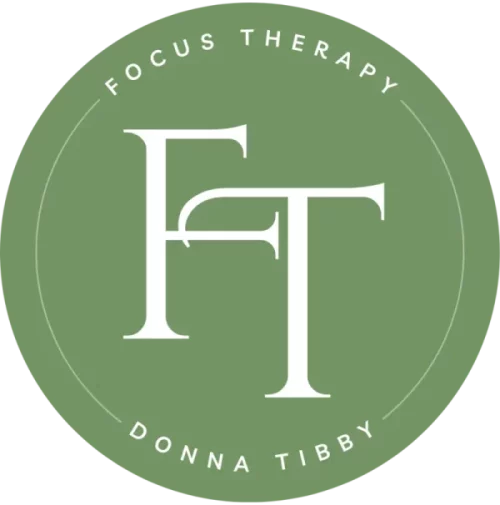Trauma therapy in London has made extraordinary strides over the past decade. In 2025, groundbreaking approaches to treating Complex Post-Traumatic Stress Disorder (C-PTSD) are transforming the mental health landscape and offering renewed hope to millions of people worldwide.
While traditional therapies and medication have long been pillars of trauma treatment in London, a new wave of therapies is redefining how we understand and heal trauma.
In this blog, we’ll explore what C-PTSD is and the most significant emerging therapies reshaping trauma care today.
What Is Complex Post-Traumatic Stress Disorder (PTSD)?
Post-Traumatic Stress Disorder (PTSD) is a well-known mental health condition that develops in response to life-threatening or deeply distressing events such as combat, natural disasters, or serious accidents. Complex PTSD (C-PTSD), however, extends beyond single-incident trauma. It emerges from prolonged or repeated exposure to traumatic experiences, often beginning in childhood. Examples include ongoing abuse, neglect, captivity, or chronic exposure to violence.
Unlike standard PTSD, C-PTSD goes beyond intrusive memories and hyperarousal. It profoundly affects self-identity, interpersonal relationships, and emotional regulation. Individuals with C-PTSD often report feelings of deep shame, chronic helplessness, and difficulties trusting others. They may struggle with dissociation, emotional numbing, or self-destructive behaviours.
C-PTSD does not simply reflect a traumatic event, but rather the lasting impact of living in unsafe conditions for an extended period. Healing requires not only addressing the traumatic memories themselves but also repairing the fractured sense of self and rebuilding inner safety.
Key Triggers and Symptoms of PTSD
Understanding the triggers and symptoms of C-PTSD is essential for both individuals and clinicians. While no two experiences are identical, common themes emerge.
Key Triggers:
- Sensory reminders of trauma: Particular sounds, smells, or visual cues can bring individuals back to a traumatic environment.
- Relational dynamics: Situations involving power imbalances, rejection, or abandonment may be triggering.
- Internal states: Feeling vulnerable, trapped, or powerless can activate intense responses, even in safe environments.
Core Symptoms of C-PTSD:
- Re-experiencing: Nightmares, flashbacks, or emotional flooding when confronted with trauma reminders.
- Hyperarousal: Heightened startle response, chronic anxiety, sleep disturbances, and irritability.
- Avoidance: Withdrawal from people, places, or situations associated with past trauma.
- Negative self-perception: Persistent shame, guilt, and feelings of worthlessness.
- Difficulty with relationships: Challenges in establishing trust, fear of abandonment, or recurring relational conflict.
- Emotional dysregulation: Overwhelming emotions like rage, despair, or numbness with difficulty returning to a baseline state.
In 2025, clinicians recognise that C-PTSD is not just a mental health condition; it’s an entire body-and-brain response pattern. This understanding is fuelling therapies that move beyond words to address trauma on physical, emotional, and neurological levels.
Top Therapies in PTSD Treatment in UK
In 2025, several cutting-edge therapies stand out as transformative in healing complex trauma. These interventions reflect a broader understanding of how trauma alters the nervous system, brain chemistry, and sense of identity.
Trauma-Focused Cognitive Behavioural Therapy (TF-CBT)
TF-CBT is widely used to help individuals with Complex PTSD by addressing distorted thinking patterns linked to trauma. It combines cognitive restructuring with gradual exposure to traumatic memories, allowing patients to process experiences safely. This therapy reduces avoidance behaviours, improves emotional regulation, and enhances day-to-day resilience.
Eye Movement Desensitisation and Reprocessing (EMDR)
EMDR is a frontline therapy for Complex PTSD. It utilises eye movements or bilateral stimulation in conjunction with memory recall to alleviate emotional distress. By reprocessing traumatic memories, EMDR helps patients diminish flashbacks and intrusive thoughts while strengthening healthier beliefs about the self and future.
Cognitive Processing Therapy (CPT)
CPT is especially effective for patients who struggle with self-blame and negative self-perceptions after trauma. CPT guides patients to challenge stuck thinking patterns and reframe traumatic events. It empowers survivors to replace guilt and shame with more balanced interpretations, fostering long-term psychological recovery.
Accelerated Resolution Therapy (ART)
Accelerated Resolution Therapy is a newer approach for treating PTSD. ART uses image replacement techniques combined with calming eye movements to reduce trauma-related distress quickly. Patients often achieve significant symptom relief within a few sessions, making it practical and efficient for trauma therapy in London.
Prolonged Exposure (PE)
PE therapy is a cornerstone treatment offered in clinics. It involves revisiting traumatic memories in a structured way to reduce avoidance. Over time, repeated exposure desensitises patients to triggers, helping them regain control over fear responses and build resilience in safe, supportive settings.
MDMA-Assisted Therapy
MDMA enhances emotional openness and reduces fear, enabling patients to process traumatic events without overwhelming distress. Early studies highlight its potential as a breakthrough therapy, particularly for individuals who are unresponsive to traditional methods.
Virtual Reality Exposure Therapy (VRET)
VRET is an innovative digital therapy. Using immersive virtual environments, patients safely confront triggers under professional guidance. This cutting-edge approach combines the benefits of traditional exposure therapy with technology, offering controlled, tailored treatments that enhance engagement and symptom reduction in C-PTSD cases.
Solution Focused Brief Therapy (SFBT)
SFBT is used as a supportive therapy for individuals with Complex PTSD. Rather than focusing extensively on past trauma, it emphasises building solutions, coping strategies, and future goals. This strengths-based approach fosters hope, resilience, and empowerment, making it an effective complement to trauma-specific therapies.
Empowering Personal Growth and Emotional Resilience Through Integrative Therapy
My counselling and psychotherapy service is based in Barnet, Maida Vale, and Kentish Town, with online availability. The practice focuses on supporting individuals through a variety of life challenges, including depression, anxiety, stress, relationship problems, bereavement, grief, and loss. The therapeutic approach is grounded in creating a warm, supportive, and non-judgmental environment where clients can explore their feelings and experiences safely and securely.
I work as a Person Centred Integrative Counsellor, providing a flexible and accessible therapy that aims to help clients develop clarity, understanding, and the strength to overcome obstacles. Our trauma therapy in London seeks to empower clients to find their own answers and build resilience, rather than "fixing" them. This approach fosters personal growth, enhances emotional management, and promotes healthier relationships.
Sessions can be individual or couples counselling, with a focus on fostering deeper communication and connection in relationships. Additionally, unique workshops and events are offered as an alternative to traditional bereavement counselling, allowing clients to share experiences and develop coping strategies in a group setting.
The therapy rooms are conveniently located near tube stations in High Barnet and Harrow, with parking available. Online sessions also accommodate those who require remote access.
I help by providing compassionate person-centred counselling and psychotherapy tailored to individuals facing emotional and mental health challenges, with the goal of fostering healing, self-awareness, and empowerment in a safe and supportive environment.
Please contact me if you need any assistance.


